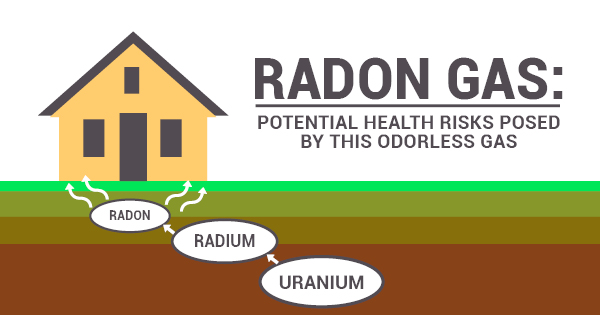Every year I like to bring awareness about radon to those who don’t know about it or aren’t aware of ways to mitigate this health hazard.
Radon levels are high in Colorado. Data collected by the Colorado Department of Public Health and Environment (CDPHE) indicates approximately 50% of homes in Colorado have radon levels higher than the U.S. Environmental Protection Agency (EPA) recommended action level of 4 picocuries per liter of air (pCi/L).
Radon is a naturally occurring radioactive gas that can cause lung cancer. You can’t see or smell radon. Testing is the only way to know your level of exposure. It is important to test your home even if you have a radon system in place. Every few years I recommend that since we make changes to our homes that could affect those levels. The EPA has information about radon gas on their web site.

So how do you find out if your home radon levels are high? You can hire a professional tester or do it yourself with a kit you buy at a hardware store or online. Follow the instructions for leaving the kit in your house for the required number of days. Then mail it to a lab and wait for the results.
There is a link to a free radon test for Colorado residents at this web site while supplies last. I just ordered mine. The EPA has a web page dedicated to how to get it tested. A professional tester will leave a kit in the lowest level of your home for 48 hours. I have great recommendations for professionals. Please reach out if you would like a recommendation.
If radon levels in your home are high, you can take steps to lower them. Mitigation systems are in the $800-$2000 range (depending on access, etc.)
For FAQs check out Colorado Radon Services web site.
I am here as a resource. Please reach out any time. Doesn’t matter if you are looking to buy or sell real estate (which are times I always recommend testing) but as a homeowner it is a good practice to keep you and your loved ones safe.
Radon levels are high in ColoradoData collected by the Colorado Department of Public Health and Environment ( CDPHE ) indicates that approximately 50% of homes in Colorado have radon levels higher than the U.S. Environmental Protection Agency ( EPA ) recommended action level of 4 picocuries per liter of air ( pCi/L ).
